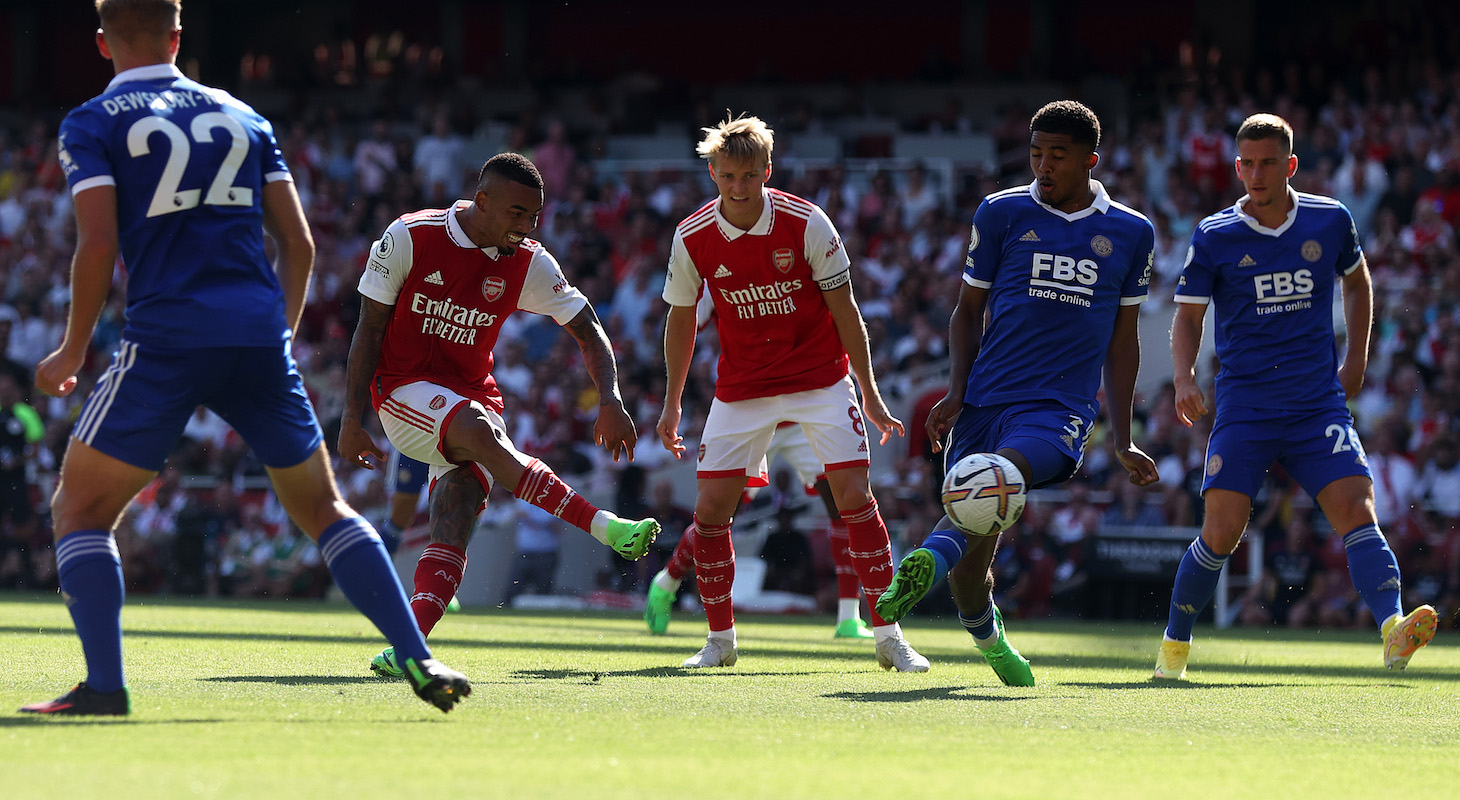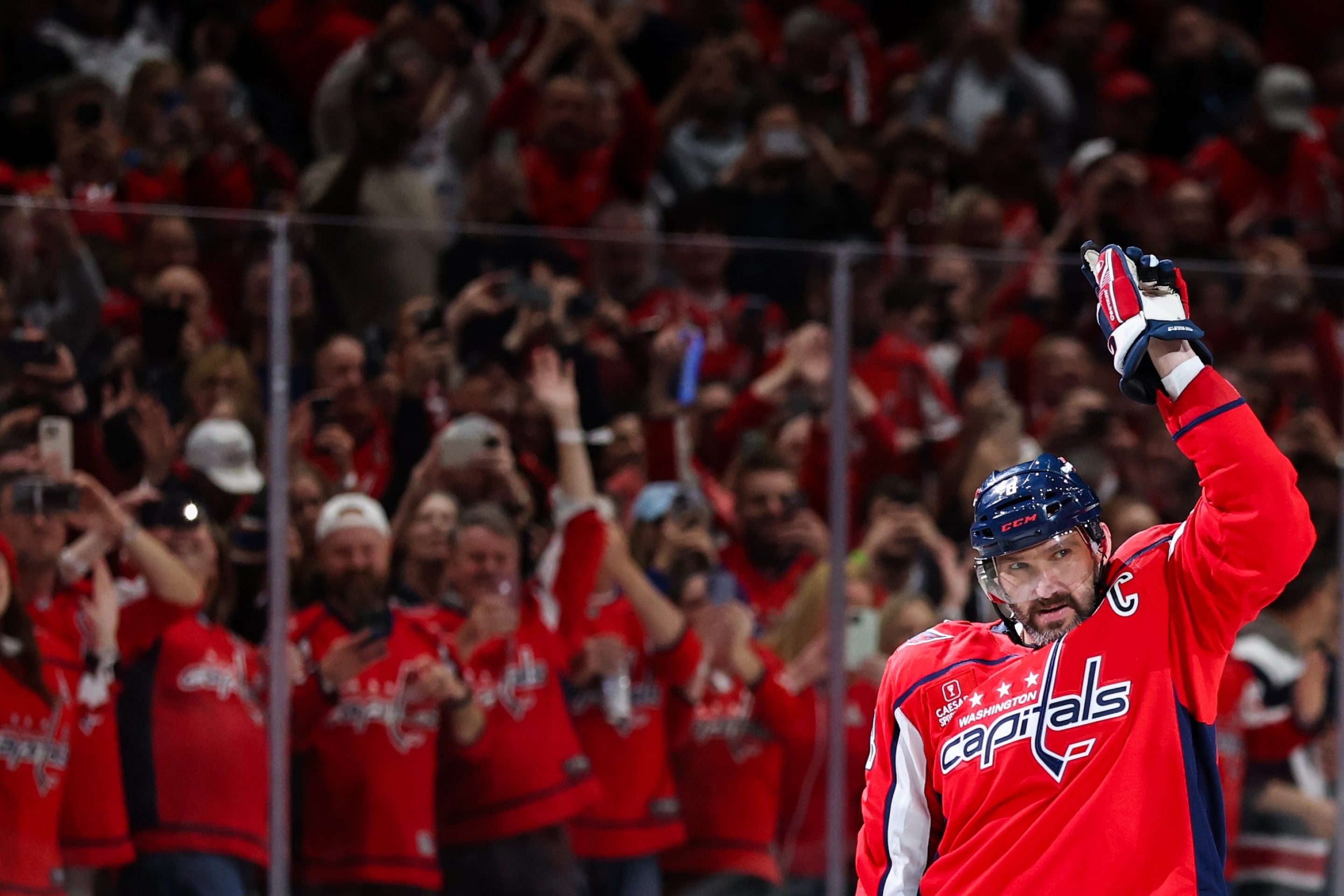Since joining Arsenal in the summer, Gabriel Jesus has looked like a completely different player. It's only been two games, but for the full duration of each the 25-year-old Brazilian has been incredible. Like an exposed electrical cable sparking and crackling and lashing about, Jesus has been a constant source of power and danger at the center of the Gunners' attacks. He starred even without getting on the scoresheet in Arsenal's 2–0 win over Crystal Palace, and he played a direct hand in all four goals in Sunday's 4–2 win over Leicester City. The Gabriel Jesus who plays like this is not the Gabriel Jesus we saw for five-and-a-half years at Manchester City.
Gabriel Jesus vs. Leicesterpic.twitter.com/76AacFlqUA
— ّ (@LSVids) August 13, 2022
But while the energy and anarchy of the Arsenal Jesus stands in stark contrast to his effective but bridled performances in Manchester, it is not altogether unprecedented from him. The current version looks a lot like the earliest Jesus, the teenager at Palmeiras who took Brazil by storm and earned a reputation as one of the most gifted strikers the country had produced in years. So while it would be accurate to say we're seeing a different Jesus, it would be more accurate to say that the old Jesus looks to have finally come back.
Where had that Jesus been all that time? Apparently, locked inside the Man City one, just waiting to get out. Mostly, it appears to have been a matter of context. At Palmeiras, Jesus was free to follow his instincts wherever they led, and was empowered by the knowledge that, as his team's biggest star and the league's best player, his position was totally secure. This allowed him to unleash the full breadth of his copious talents all over the pitch.
At Man City, the situation was much different. He never solidified for himself a consistent place in the starting lineup of one of the deepest rosters in the world, and under a manager like Pep Guardiola, who prioritizes safe ball retention and predictable, perfectible movements and behaviors, Jesus had to sublimate much of the quintessentially South American dynamism and expansiveness that had defined his game in Brazil. Jesus is a remarkably versatile, intelligent, and committed player, so he still managed to do quite well under the restrictive conditions of Guardiola's scheme. Nevertheless, the good but docile Manchester Jesus bore little resemblance to the great and rebellious version we saw at Palmeiras, the one who appeared destined for a future more spectacular than what we saw in Manchester.
In signing him for some €50 million, Arsenal bet that, under the right circumstances, the club could return Jesus to his former glory. It's a bet that appears to be paying off. At Arsenal, Jesus is able to play his best position, center forward, exactly the way he likes. He can move all over the pitch—drifting out to both wings, dropping into the midfield, pushing forward to threaten the space behind the back line, and everything in between—and, crucially, is allowed to act, to choose, and to risk rather than just doing the safe thing, the thing he is supposed to do according to the manager's tactical strictures. The abandon and stratospheric confidence Jesus is now playing with has returned him to his fullest, best version.
There's been a lot of talk lately about freedom and constraint in soccer, specifically in regards to Guardiola. He was asked about it in the lead-up to this weekend's fixtures, and had this to say:
Pep Guardiola: "If I can create more chances for the strikers to score, this is tactics. I don't say do whatever you want because that's chaos. Tactics isn't against creativity for players. It's easier for them - we're seven seasons together, it's not difficult." [via @_joebray]
— City Xtra (@City_Xtra) August 12, 2022
Guardiola's comments echo the ones he made during a recent TV panel moderated by Jorge Valdano, about whether the modern game's exacting tactics inhibit the creativity that was present in previous, tactically looser eras. Guardiola, the patron saint of modern exacting tactics, seems to believe in a creativity that emerges first from control. If through his tactics he can prepare his players for everything they're likely to see in a match, and can engrain in them specific patterns of play that can clarify exactly what they should do in any given scenario, then he believes he can free his players from having to think too much, thereby allowing them to act instinctively in the moment. By having everything already decided ahead of time, the player on the pitch can focus on executing the action according to the demands of the moment and the resources his talent provides.
This is certainly a kind of freedom, and clearly the result of Guardiola's soccer philosophy can be effective, successful, and beautiful. But soccer cannot be "solved" in any definitive sense, and what works for one club or manager or player doesn't work for them all. The same system that has maximized the abilities of Kevin De Bruyne did not get the best out of Gabriel Jesus, as the latter plays best when allowed to live in the "chaos" Guardiola seeks to suppress, and that's totally fine.
Questions of freedom vs. order, individuality vs. collectivity always have and always will lie beneath soccer's ever-evolving tactical and aesthetic paradigms. There are no right or wrong answers—there is only what any given coach believes in, what any given player feels, and what any given fan is stirred by. What Gabriel Jesus feels is something that looks more like what Mikel Arteta has set up for him at Arsenal than what the Brazilian played at Man City. All that really matters is that Jesus has found it and found himself again, and the result is already something well worth watching.






